- Home
- JoAnn Ross
The Long Way Back
The Long Way Back Read online
From New York Times bestselling author JoAnn Ross comes a classic tale about coming home again!
Caine O’Halloran lost his heart broken more than once. Ten years ago, Caine had married the only woman he’s ever loved, Nora Anderson. However, when he lost their son in a tragic car accident, Nora never forgave him, and the death destroyed their marriage. But now Caine’s retired from his career as a baseball pitcher, and he has come back home to win Nora back. Now a busy doctor, Nora doesn’t have time to risk getting hurt again. Caine will have to convince her, and himself, that they deserve a second chance.
Originally published as The Return of Caine O’Halloran in 1994.
Praise for New York Times bestselling author JoAnn Ross
“[JoAnn Ross has a] talent for blending vibrant characters, congenial small-town settings and pressing social issues in a heartwarming contemporary romance.”
—Booklist
“Ross’s insight into both romantic attraction and family dynamics is striking.”
—Publishers Weekly
“A superb storyteller who always creates unforgettable characterization.”
—RT Book Reviews
JoANN ROSS
New York Times and USA TODAY bestselling author JoAnn Ross has been published in twenty-seven countries. A member of Romance Writers of America’s Honor Roll of bestselling authors, JoAnn lives with her husband and three rescued dogs—who pretty much rule the house—in the Pacific Northwest. Visit her on the web at www.joannross.com.
The Long Way Back
JoAnn Ross
Dear Reader,
I’ve always enjoyed writing stories about reunited lovers. So much so, I drew from my own reunion romance while writing The Return of Caine O’Halloran, and although the book was first released in 1994, Caine and Nora remain very close to my heart.
Long ago, in a small coastal town on the Oregon coast, my high school sweetheart bought me a white paper bag of taffy, then proposed to me at the sea wall. A few months later I was a teenage bride. Nine years after our wedding, I was a divorced single mom.
Although the reasons for our breakup were not as tragic as Caine and Nora’s, they were nonetheless painful.
We were apart for two years, during which time we both grew up and changed a great deal. Back then my husband’s career involved a lot of traveling, but he returned to town frequently to visit our son.
It was during those visits that we realized that we each liked the person the other had become. That awareness, coupled with a very strong love that had never died, made us decide to try again.
We’ve never had any reason to regret that decision, and last summer, in that small coastal town we still love to visit, we celebrated our forty-seventh anniversary. And yes, that taffy store is still there!
In our case, as in Caine and Nora’s, love truly is better the second time around. I hope you enjoy their story.
XO
JoAnn Ross
To Jay, who refused to give up on us
CONTENTS
Chapter 1
Chapter 2
Chapter 3
Chapter 4
Chapter 5
Chapter 6
Chapter 7
Chapter 8
Chapter 9
Chapter 10
Chapter 11
Chapter 12
Chapter 13
CHAPTER 1
He could have driven home blindfolded.
The two-lane road twisted like a snarled fishing line, unreeling through the sawtooth-forested mountains in sharp zigzags that defied compass reckoning. To make matters worse, the spring thaw had pitted the asphalt, creating a new season of dangerous dips and washouts. The low-slung black Ferrari, not built for back-country roads, thumped roughly over the scarred pavement.
Unfazed by the danger, Caine O’Halloran coaxed the hell-on-wheels beast around the deadly narrow switchbacks with practiced skill.
The engine behind his head whined as the revs rose and fell; blaring from the four amplified stereo speakers, Bruce Springsteen was advising “no surrender.” Caine’s fingers tapped out the driving rhythm of drums and acoustic guitar on the top of the steering wheel. Towering trees—Pacific silver fir, Western hemlock and the majestic Douglas fir—screened both sides of the roadway, making it seem as if he were racing through a narrow green alley.
Those same trees were reflected in the lenses of Caine’s dark glasses. Although the sky overhead was the hue of tarnished silver, a few sunbeams managed to slant through the curtain of trees, laying shimmering stripes of light across the pavement.
The sound of moving water was everywhere as streams born in melting glaciers fed the rivers running to the sea. The scent of freshly cut fir rode the brisk spring wind.
When The Boss started singing about missing Bobby Jean, Caine leaned forward and punched a button to skip the song. He damn well wasn’t in any mood to reminisce about lost loves.
“‘Glory Days’,” he said approvingly when the speaker blared the familiar lyrics of the next song.
One night a few years ago, after he’d played it three times on the jukebox in a Minneapolis bar, a winsome coed from the University of Minnesota had informed him that it was really a song about faded dreams and lost opportunities.
Caine hadn’t believed that then, and he sure as hell didn’t now. To him it would always be The Boss’s tribute to athletes who possessed blazing speedballs that made other guys look like fools. Guys like Caine O’Halloran.
He sped past a runaway-truck escape ramp that looked like a ski jump, downshifted as he approached yet another twist in the road, then punched the gas pedal. The Ferrari rocketed out of the turn like a moon shot.
Cornering in a Ferrari going top speed wasn’t for the faint of heart. The speedometer shot upward and the tachometer approached the red line as the speed of the car blurred the trees. The force of over five hundred horses fully opened up pushed him back against the onyx leather seats. The engine’s shriek rivaled that of a fighter jet.
When he reached one of the few straight stretches on the highway, Caine floored the accelerator; straddling the white centerline, the car streaked toward an enormous truck loaded with logs.
The Peterbilt log truck was the same green as the fir trees flashing by the Ferrari’s tinted windows. Tall chrome stacks emitted billowy puffs of diesel exhaust, like smoke signals.
The strident warning of the air horn shattered the mountain stillness.
Once.
Twice.
A third time.
Smiling with grim determination, Caine refused to budge. The asphalt stretched between car and truck like a shiny black ribbon. All the time he remained as cool as if he were out for a leisurely Sunday-afternoon drive in the country, instead of barreling hell-bent-for-leather straight to his death. No retreat; no surrender. The rock refrain pounded in his head; adrenaline raced through his blood like a drug.
The air horn, now a steady, impatient bleat, split the air.
Time took on the strange feel of an instant slow-motion replay as Caine became vividly aware of the staccato flash of white lines disappearing beneath the Ferrari’s wide radial tires, of the sun glancing off the chrome stack of the truck, of the driver’s red-and-black plaid shirt, of his orange-billed cap, of his grizzled gray beard and finally, as the truck came even closer, of the man’s expression: first disbelief, then fright, finally fury.
No retreat. No surrender.
Caine waited fatalistically for the bearded man to make his move.
At the last possible second, the truck veered; its right wheels went off the road, scattering gravel. Caine got a fleeting glimpse of a stocky, raised middle finger.
A moment later, a pickup that had been following the Peterbi
lt passed Caine, as well. The driver stared at the Ferrari in obvious disbelief.
Caine watched the trucks disappear in his rearview mirror. When he’d been seventeen, speeding around these hairpin curves in a fire-engine-red Mustang convertible, emerging victorious from a game of chicken with the ubiquitous log trucks had always left him feeling vividly alive.
But after today’s near-death encounter, he felt strangely let down. And disappointed. As Springsteen’s gravelly voice began singing about “working on the highway,” a hangover Caine had nearly forgotten after crossing the Oregon-Washington State border and entering the Olympic Peninsula came crashing back.
* * *
The news spread through the town of Tribulation like wildfire. Caine O’Halloran was back.
Dr. Nora Anderson was on duty in her clinic when she received the unexpected bulletin from her eight-year-old nephew, who’d become airborne after turning a corner too fast on his skateboard. The landing, not soft, had been on a gravel driveway.
“Did you hear the sick news?” Eric Anderson asked, trying with youthful bravado not to flinch as Nora picked pieces of cinder from his palm with a pair of surgical tweezers.
“Eric,” his mother chided, “your aunt is trying to concentrate.”
Karin Anderson’s voice was edged with a stern warning tone that made Nora look up. “What news?”
“Caine got cut from the Yankees,” Eric told her. “But Jimmy Olson told me that his dad told him that Caine was comin’ home to live here while he gets his arm back in shape.
“We saw his car parked outside The Log Cabin,” he said. “You should see it, Aunt Nora! It looks just like the Batmobile!”
A ratmobile was more like it. And to be hanging around a bar in the middle of the afternoon! Obviously, Caine hadn’t changed. “It’s true,” Karin said, her blue eyes offering sympathy.
“Well, I hope things work out for him,” Nora said calmly. She’d sealed any feelings concerning Caine O’Halloran inside her, years ago. It was easier. Safer.
“Do you think he’ll give me a ride in his car, huh, Aunt Nora?” Eric asked hopefully. “After all, we are kinda related.”
Nora knew that Eric used his aunt’s former marriage to the baseball star to gain points on the playground. Understanding a small boy’s obsession with heroes—even ones undeserving of such loyalty—Eric’s behavior had never bothered her.
But then again, Caine hadn’t been living in Tribulation, either.
“I don’t know,” she answered. Never having been able to predict her ex-husband’s behavior, she certainly wasn’t going to start trying to guess what was going through his adolescent mind now. “You’ll have to ask him that yourself.” She tackled another piece of gravel.
“Ouch!” Eric yanked his hand back.
“Sorry.” She’d used more force than necessary. Damn Caine, anyway.
Although she’d been in her first year of medical school during their brief and stormy marriage, he hadn’t believed her when she’d insisted that she didn’t intend to let marriage or motherhood interfere with her plans to be a doctor.
No, Nora corrected now. It wasn’t that Caine hadn’t believed her; it was more that he hadn’t listened. By the time she’d been married a week, Nora had realized that her husband possessed the unique ability to hear only what he wanted to hear.
“Well, I think that’s all of it,” she said, giving her nephew’s hand one last antiseptic wash. Nora turned to her sister-in-law. “If I were you, I’d hide that skateboard.”
“I’m turning it into kindling the minute we get home.”
“Mom!” Color returned to Eric’s cheeks, staining them as red as the raspberries that grew wild in the forest surrounding the mountain town.
“We’ll discuss this later,” Karin said firmly. “At home. With your father.”
His shoulders slumped disconsolately. “Dad’ll side with you. He always does.”
Although she agreed with Karin’s decision to deny Eric further skateboard privileges, Nora’s heart went out to her nephew. “Hey, Eric…”
His bottom lip was thrust out over his top one. “What?”
She tossed him a couple of the silver gambling tokens Karl Mahlstrom had paid his bill with earlier that morning. The retired mill worker had returned from Reno, Nevada, with paper cups filled with coins and a stiff shoulder from eighteen hours at the slot machines.
“Why don’t you take your mom out for some ice cream?”
The pout wavered, a reluctant smile played at the corners of his lips. “Okay,” he agreed with an outward lack of enthusiasm that Nora knew was mostly feigned. Then, remembering his manners, he said, “Thanks, Aunt Nora.”
“You’re welcome.” Nora exchanged another long look with her sister-in-law. We’ll talk about Caine later, Karin’s look said.
Not on a bet, Nora’s answered.
It was Monday, the day of the week when a steady stream of patients always showed up at the clinic, showing the effects of a weekend of recreational abuse.
On top of that, her nurse, Kirstin Lundstrom, was still on maternity leave. Nora had to serve as nurse, doctor and office clerk, which meant that she barely had time to catch her breath all day.
Not that Nora minded the hectic pace; she was grateful that she didn’t have time to think about Caine O’Halloran’s return. And what, if anything, that would mean to her life.
Returning to Washington’s Olympic Peninsula to practice family medicine in her hometown of two hundred and fifty residents meant that Nora saw her patients at the grocery store, or weeding their flower gardens, or over potato salad at a church potluck social.
It also meant that she was more likely to be intimately involved with a patient, so that a serious illness or a death touched her more than it had at the big-city hospitals where she’d worked before returning home to Tribulation.
Many of her patients had lost their health insurance, along with their jobs. They were people too poor to pay for visits to the doctor, but too proud to ask for government assistance. Although the condition of the Northwest’s logging and fishing industries had not been struck a fatal blow, recovery was a long time coming to this isolated forest community. In order to finance her new clinic, which she’d set up in the hundred-year-old house she’d inherited from her grandmother, Nora also made the thirty-five-mile round trip to Port Angeles to work in the hospital emergency room.
Her clinic was open on Monday, Wednesday and Friday; she worked at the emergency room on Tuesdays, Thursdays and Saturdays. Although sleep was as rare as it had been during the grueling thirty-six-hour shifts of her internship, not once had she regretted her decision.
Her work in the emergency room, while fulfilling in its own way, paid the bills and put food on the table. Her work at the clinic—caring for family, friends and neighbors—fed her soul.
The complaints today were relatively minor and she wasn’t surprised that every one of her patients wanted to talk about Caine’s return to Tribulation.
“Caine’ll be back on the mound by the All-Star break,” Johnny Duggan informed her after she’d given him a sample package of antihistamine to soothe some yellow-jacket stings that hadn’t responded to calamine lotion. “That boy always was a pistol.”
Since Johnny was Caine’s third cousin on his mother’s side, Nora could understand the man’s loyalty.
The next member of the Caine O’Halloran fan club was Ingrid Johansson, who’d run the Timberline Café since long before Nora was born. The elderly woman had strained a back muscle getting a box of steak sauce down from a too-high shelf.
“If the boy could come back from that torn rotor cuff three years ago, this new injury won’t be any problem,” Ingrid predicted as she paid her bill. The worn, rumpled bills, smelling faintly of chain-saw gasoline, were evidence of a clientele consisting mainly of loggers.
“Oh, I brought you something,” Ingrid said. “For giving my Lars that cough medicine last week for no charge.”
She
handed Nora a brown paper bag from which rose an enticing scent of warm apples and brown sugar. “It’s a strudel,” she added unnecessarily.
“Thanks.” Nora could envision the cellulite leaping to her thighs from the aroma alone. “It smells delicious.”
She’d already gained ten pounds since returning to Tribulation, mostly from her patients’ peach cobblers, berry pies, fresh-caught—and thankfully cleaned—fish, corn muffins and numerous other local delicacies.
It was as if everyone realized she was undercharging them for their visits, and although they were grateful, pride insisted that they augment the reduced fee with whatever they could spare.
“I figured you could use a little fattening up.” Ingrid’s bright eyes swept judiciously over Nora’s slender frame. “You’re not gonna get yourself a man unless you put a little more meat on those bones.”
“Actually, I’ve been too busy to even think about men.”
“Well, I expect that’ll change, now that Caine’s back in town,” the older woman declared.
“My marriage to Caine ended a long time ago,” Nora replied, reluctant to be discussing something so personal, but feeling that her disinterest in Caine O’Halloran needed to be put on record.
And who better to start with than Ingrid? Nora doubted that there was a person in Tribulation who didn’t pop into the eatery sometime during the week. Especially on Wednesdays, for Ingrid’s pot-roast special.
“Legally,” Ingrid agreed, closing her pocketbook with a snap. “My experience has been that feelings are quite another kettle of fish.”
Determined to get the last word in, she left the office without giving Nora an opportunity to respond.
For the rest of the day, Nora continued to smile and nod and write prescriptions and listen to yet another story depicting the life and times of Tribulation’s local hero.
Twenty-one years ago, Tribulation, a timber town founded a century earlier by a Swedish logger and an Irishman who’d been laying railroad tracks up the coast, had gone through hard times.

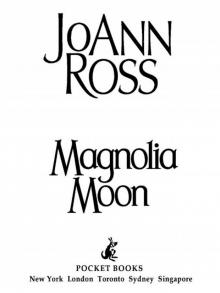 Magnolia Moon
Magnolia Moon Summer on Mirror Lake
Summer on Mirror Lake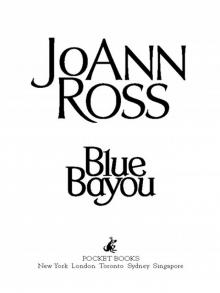 Blue Bayou
Blue Bayou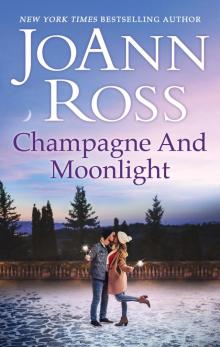 Champagne and Moonlight
Champagne and Moonlight No Regrets
No Regrets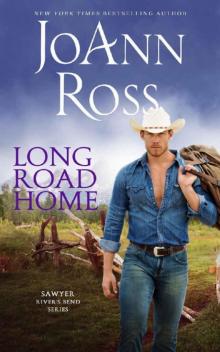 Long Road Home
Long Road Home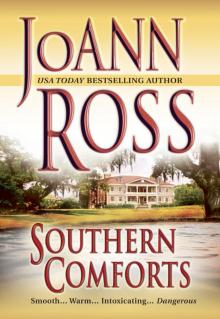 Southern Comforts
Southern Comforts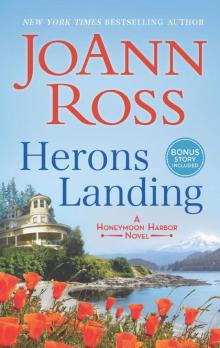 Herons Landing
Herons Landing Untamed
Untamed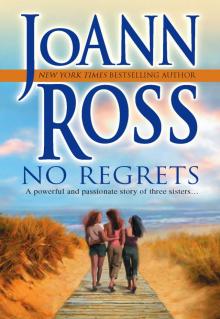 No Regrets (Mira Romance)
No Regrets (Mira Romance)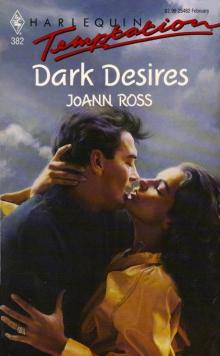 Dark Desires
Dark Desires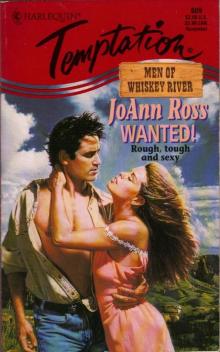 Wanted!
Wanted! River Road
River Road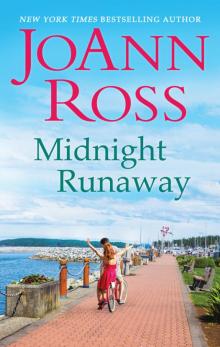 Midnight Runaway
Midnight Runaway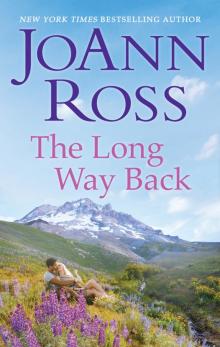 The Long Way Back
The Long Way Back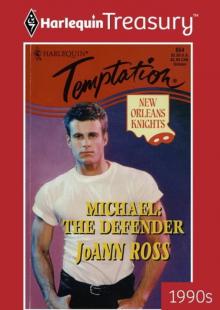 Michael: The Defender
Michael: The Defender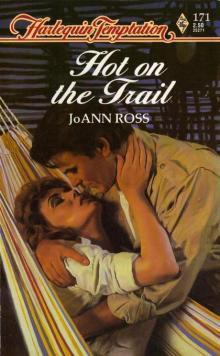 Hot on the Trail
Hot on the Trail When I'm With You
When I'm With You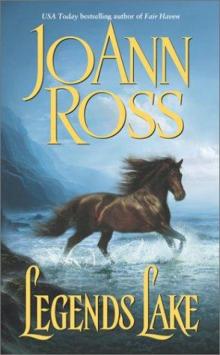 Legends Lake
Legends Lake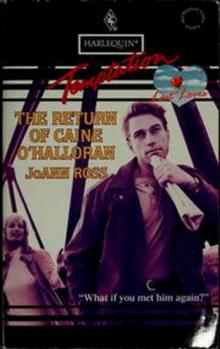 The Return of Caine O'Halloran
The Return of Caine O'Halloran Dance with a Dynasty
Dance with a Dynasty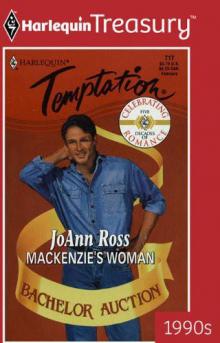 MacKenzie's Woman
MacKenzie's Woman Impulse
Impulse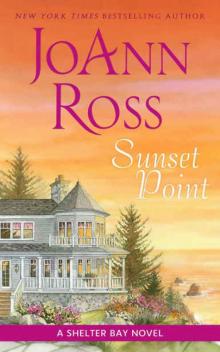 Sunset Point: A Shelter Bay Novel
Sunset Point: A Shelter Bay Novel You Again: A Shelter Bay novella (Shelter Bay series Book 8)
You Again: A Shelter Bay novella (Shelter Bay series Book 8)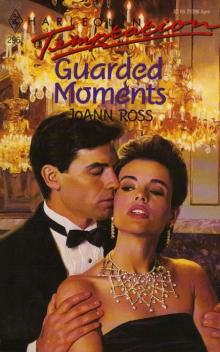 Guarded Moments
Guarded Moments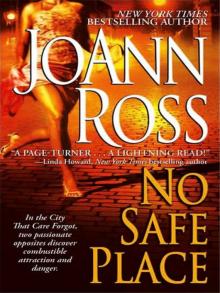 No Safe Place
No Safe Place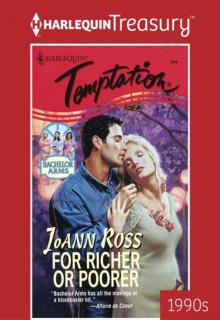 For Richer or Poorer
For Richer or Poorer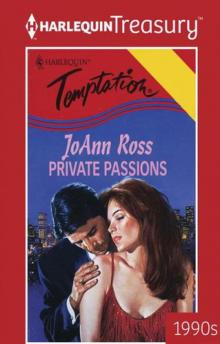 Private Passions
Private Passions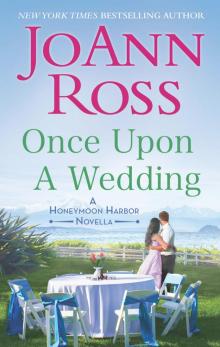 Once Upon a Wedding
Once Upon a Wedding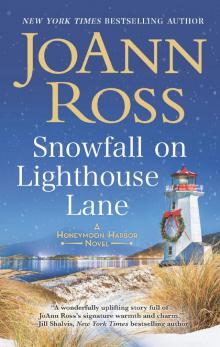 Snowfall on Lighthouse Lane
Snowfall on Lighthouse Lane Christmas on Main Street
Christmas on Main Street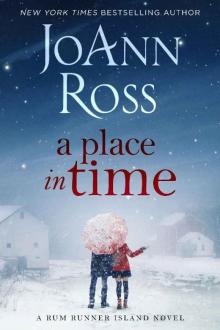 A Place in Time (Rum Runner Island Book 1)
A Place in Time (Rum Runner Island Book 1)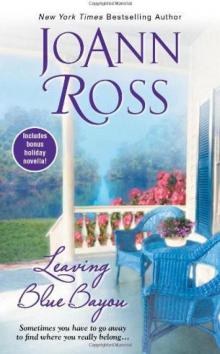 Leaving Blue Bayou
Leaving Blue Bayou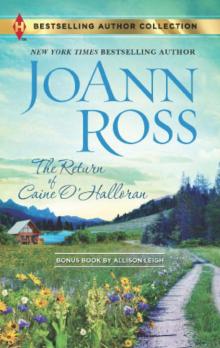 The Return of Caine O'Halloran: Hard Choices
The Return of Caine O'Halloran: Hard Choices Lucky in Love
Lucky in Love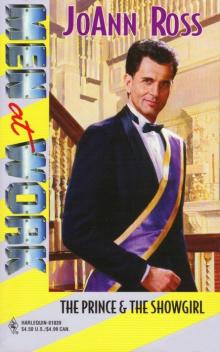 The Prince & The Showgirl
The Prince & The Showgirl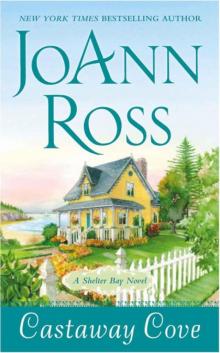 Castaway Cove
Castaway Cove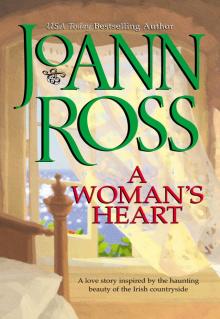 A Woman's Heart
A Woman's Heart One Summer
One Summer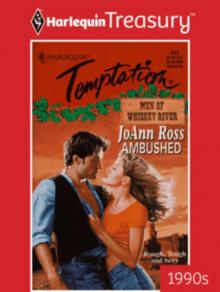 Ambushed
Ambushed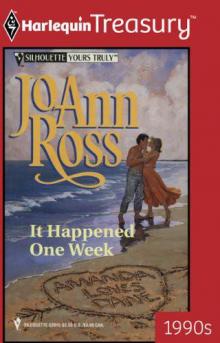 It Happened One Week
It Happened One Week Home by the Sea
Home by the Sea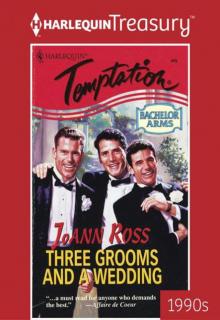 Three Grooms and a Wedding
Three Grooms and a Wedding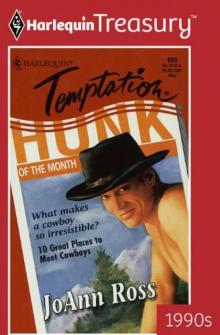 Hunk of the Month
Hunk of the Month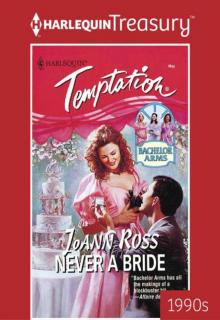 Never a Bride
Never a Bride Sun Kissed
Sun Kissed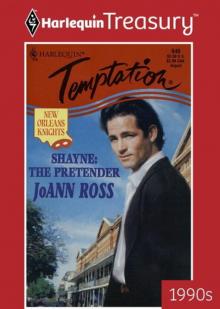 Shayne: The Pretender
Shayne: The Pretender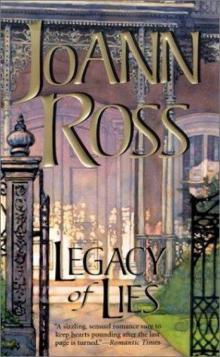 Legacy of Lies
Legacy of Lies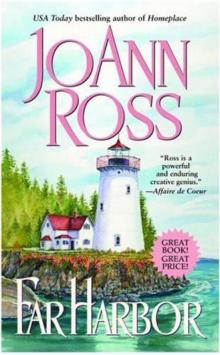 Far Harbor
Far Harbor Finn
Finn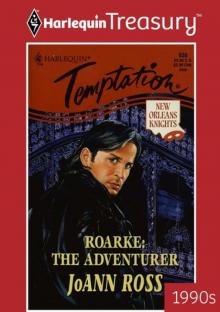 Roarke: The Adventurer
Roarke: The Adventurer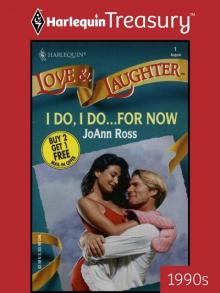 I Do, I Do...For Now (Harlequin Love and Laugher)
I Do, I Do...For Now (Harlequin Love and Laugher) Briarwood Cottage
Briarwood Cottage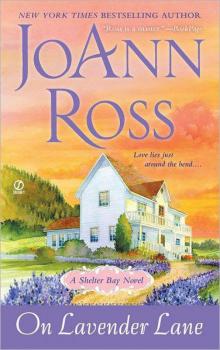 On Lavender Lane
On Lavender Lane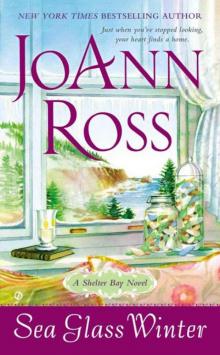 Sea Glass Winter
Sea Glass Winter River's Bend
River's Bend Christmas in Shelter Bay
Christmas in Shelter Bay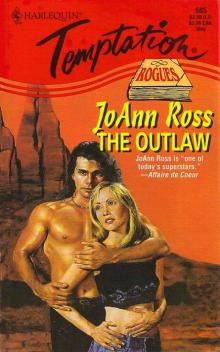 The Outlaw
The Outlaw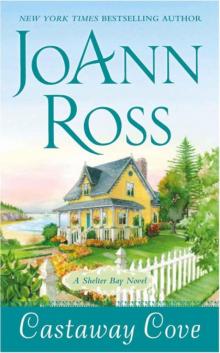 Castaway Cove (2013)
Castaway Cove (2013)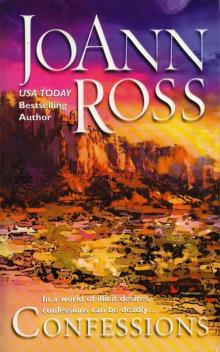 Confessions
Confessions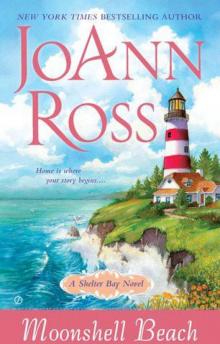 Moonshell Beach: A Shelter Bay Novel
Moonshell Beach: A Shelter Bay Novel